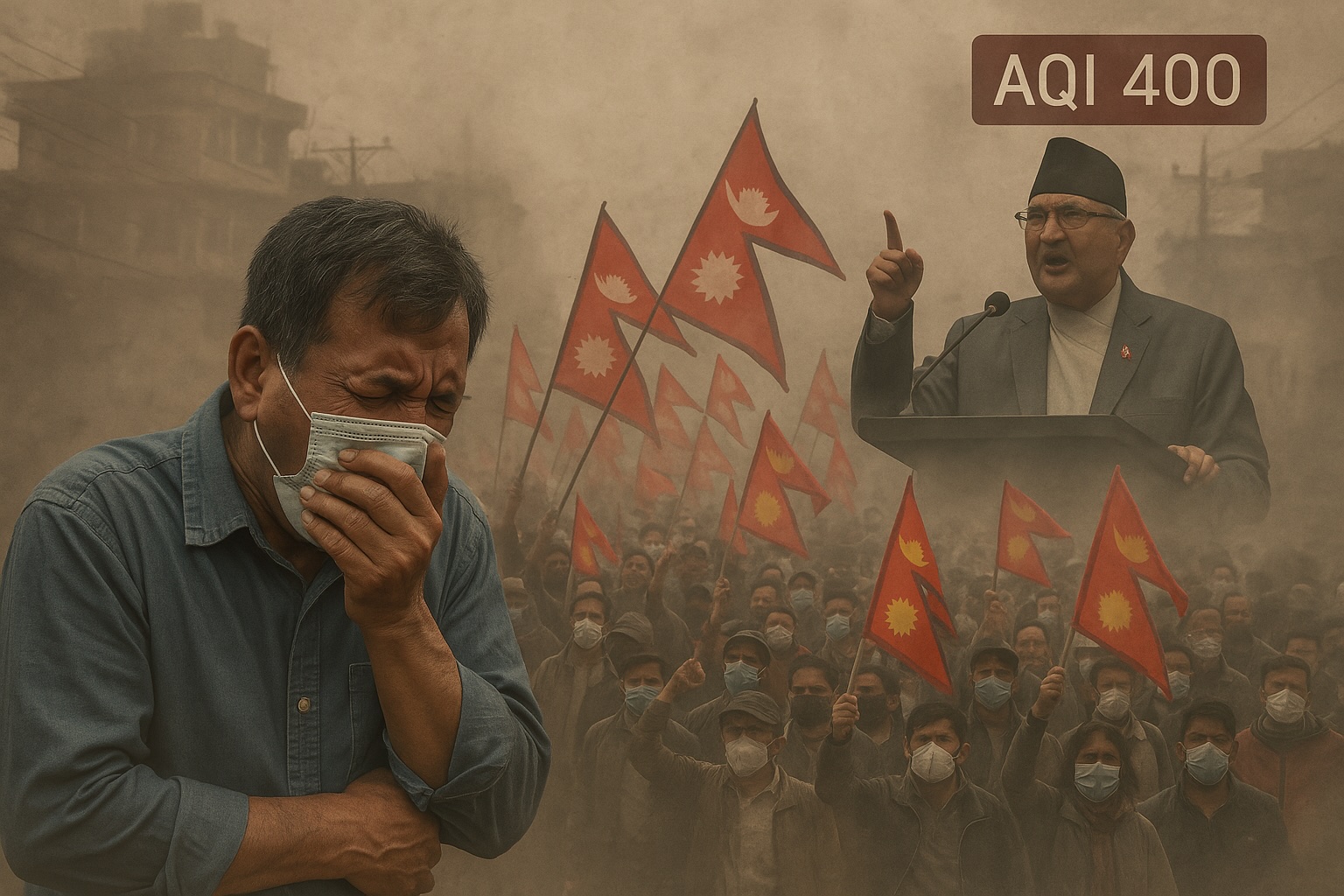Disgraced Ex-PM Oli Accused of Revenge Politics, Brutal Suppression Attempts on GenZ Movement

Disgraced former Prime Minister K.P. Sharma Oli is increasingly portrayed as a slippery, vengeful, and deeply resentful political figure. Critics liken him to a “cobra in waiting,” highlighting allegations of his criminal background, including time spent in jail, which they argue shaped his combative and retaliatory character.
Oli is frequently accused of encouraging his loyalists to take the law into their own hands, confront opponents with force, and even attempt to seize control of Kathmandu’s streets. Reports suggest he has instructed party youth wings to carry out acts of vandalism against public property. His proximity to underworld figures has also been criticized; one often-cited example is his hospital visit to a notorious gangster known as “Chari,” killed in a police encounter, where Oli was accused of publicly shielding him.
Since being ousted in the wake of Nepal’s GenZ protests, observers say Oli’s sense of vengeance has only deepened. His close ally Mahesh Basnet is reportedly preparing to mobilize hundreds of party cadres onto the streets. Analysts, however, stress that the GenZ movement is not a sudden outburst but the culmination of years of mounting frustration. As faith in old ideological frameworks—socialism, Marxism, Leninism—eroded, a younger generation disillusioned by shrinking opportunities, lack of transparency, and entrenched leadership turned to the streets demanding freedom, accountability, and a truly democratic future.
Oli, as Prime Minister, failed to read these signals. When protests swelled in Kathmandu, he resorted to deploying police to suppress demonstrators. Reports allege that individuals wearing T-shirts in support of popular mayor Balen Shah were barred from entering central Kathmandu, while UML-affiliated youth groups were mobilized to attack GenZ protesters at Dasharath Stadium. Intelligence agencies had already submitted warning reports about the potential scale of unrest, but high-level sources confirm that Oli ignored them.
Even as scrutiny of his leadership intensified, Oli appeared more absorbed in the adoration and chants of his hardline followers. For now, he remains shielded behind layers of armed security, but discontent among Nepal’s youth continues to escalate. Critics argue that Oli has fallen back on a familiar tactic—raising the specter of foreign interference—to protect his nationalist image. Yet, this time, citizens have largely dismissed the narrative, recognizing it as an empty political card.
The reality is becoming unavoidable: no amount of scapegoating or police crackdowns can silence the demands raised by the GenZ movement—freedom, opportunity, and transparency. Nepal’s new generation has already rejected the outdated style of politics embodied by Oli and is asserting its voice for an open, democratic future.




![From Kathmandu to the World: How Excel Students Are Winning Big [Admission Open]](https://nepalaaja.com/index.php/img/70194/medium/excel-college-info-eng-nep-2342.jpg)
